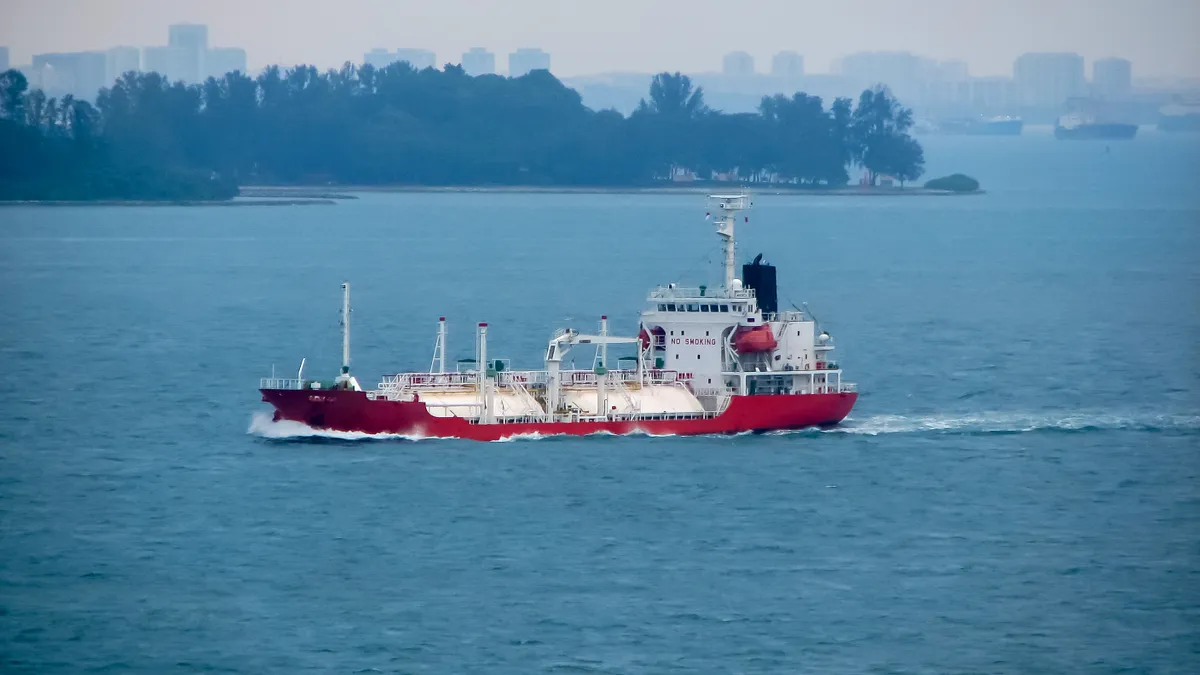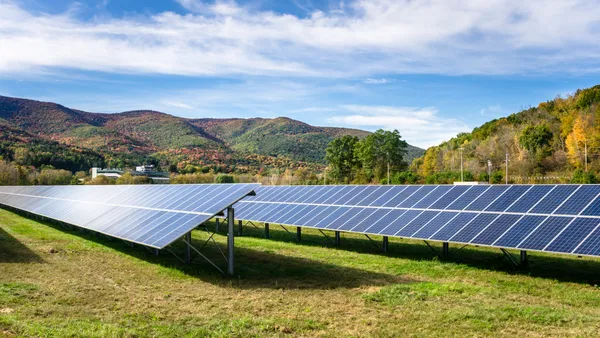Global and domestic energy policies should embrace natural gas as a transition fuel to balance energy security, equity and decarbonization across the clean energy transition, according to a report published by the EFI Foundation last week.
“All three objectives need to be on the table,” EFI Foundation President and CEO Ernest Moniz said at an event to introduce the research. “And really, the question is the balancing of those priorities.”
Moniz is a former U.S. Secretary of Energy, and EFI’s work is an extension of research done by the former Energy Futures Initiative, a nonprofit he co-founded in 2017.
It is important to note, Moniz said, that different nations will prioritize the “trilemma” of security, equity and decarbonization differently. He pointed to European imports of liquefied natural gas from the United States, which helped to stabilize the region’s energy security following Russia’s invasion of Ukraine, while domestically, decarbonization is the key issue. In developing areas of the world, natural gas is a source of affordable “carbon light” energy, he noted.
Europe lost 22 billion cubic meters of natural gas the winter following Russia’s invasion of Ukraine, according to EFI. “The United States was able to make up for 19 Bcm of the loss,” the report noted.
The world needs “pragmatic” policies, Moniz said, and EFI’s report emphasizes that that the U.S. plays “a central role in supplying other parts of the world” with LNG. Moniz pointed to the 2023 United Nations Climate Change Conference, known as COP28, which said “transitional fuels can play a role in facilitating the energy transition while ensuring energy security.”
LNG exports have ramped up dramatically in recent years, but in January President Biden paused approvals of new export terminals to review the impacts on the nation’s climate goals and security. Even with the pause, U.S. gas exports will continue rising.
Exports began around 2016, under the Obama administration, and Moniz said “we all felt quite confident that the ceiling for LNG exports” was about 15 billion cubic feet/day. Today, domestic exports are approaching that level and further approved export terminals — which are not impacted by the pause on approvals — will take the U.S. closer to 50 Bcf/d in export capacity, he said.
Rep. Sean Casten, D-Ill. has been a proponent of the Biden administration’s pause on LNG approvals, and said Monday at the Center for Strategic and International Studies that it allows for time to ask important questions. Following a disruption at the Freeport export terminal domestic gas prices fell significantly, he noted.
“Having a glut of supply [is] really good for U.S. consumers, [but] not so good for gas producers,” Casten said. And the export capacity that has already been permitted and approved “has basically filled Europe’s needs. ... So this is not about helping our friends in Europe at this point. This is about largely helping commodity traders.”
According to the U.S. Energy Information Administration, U.S. exports could reach 48.2 Bcf/d by 2050, depending on policies and prices.
Analysts at Moody’s Investors Services in an April 23 note said the outlook for the global oil and gas industry remains stable. “Demand for natural gas continues to expand and should support demand for rising natural gas exports out of the US,” analysts said.
EFI’s report includes a host of recommendations, including for the United States to “commit to an ongoing global leadership role in meeting global energy security objectives, focused on those associated with U.S. natural gas exports.”
“The United States can deliver significant quantities of LNG, but U.S. government policies need to do more to acknowledge and address the geostrategic and energy security value of U.S. LNG exports to U.S. allies and trading partners,” the report said.
Other recommendations include:
- Energy security determinations should be included as a major component of the public interest determination for approving U.S. LNG export permits to non-free trade agreement countries. Energy security is “a collective responsibility among allies and friends,” the report said.
- The report also calls for continued flexibility for export terminals, including not requiring “destination clauses” in export licenses. This policy allowed the United States to divert terminals to Europe, away from Asia, following Russia’s invasion of Ukraine.
- There should be international support for the clean energy transition in developing nations, “including support for securing reliable and affordable natural gas supplies, mitigation technologies, and infrastructure.”
- The U.S. Council on Environmental Quality “should be tasked with clarifying and routinizing the assessment criteria and guidance for emissions from U.S. LNG projects.”
- Support for new technologies and policies to reduce the cost of electrifying industrial heat processes.
“More than 30% of industrial processes require high-temperature process heat, which in turn requires a fuel for economic operation. Absent enhanced policies, actions, and affordable technologies, the industrial sector will remain one of the leading sources of increases in CO2 emissions,” EFI said.













